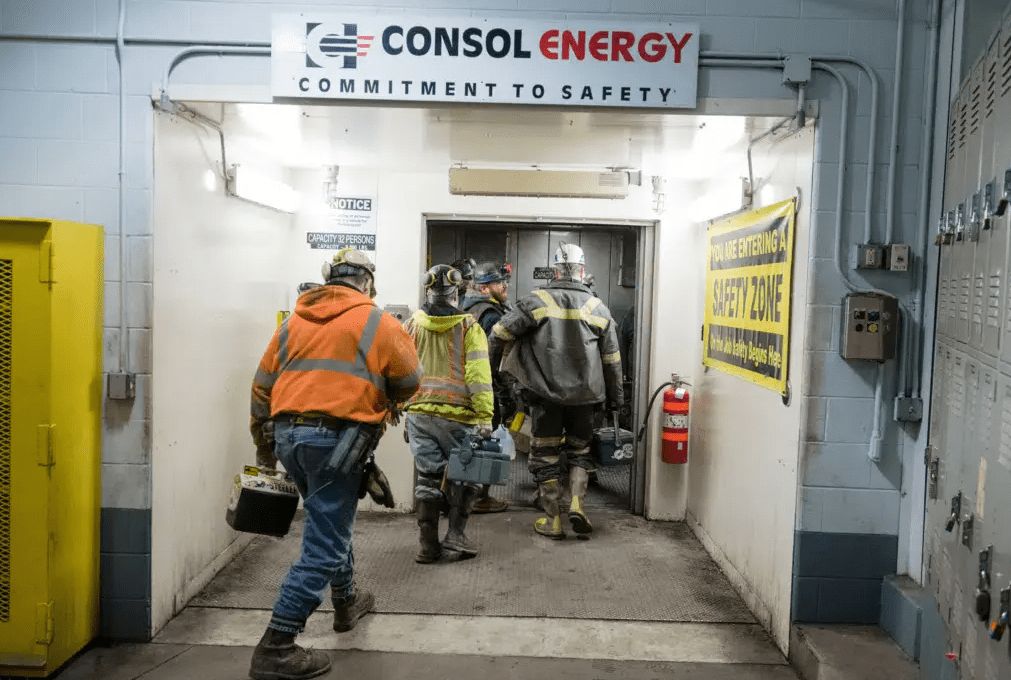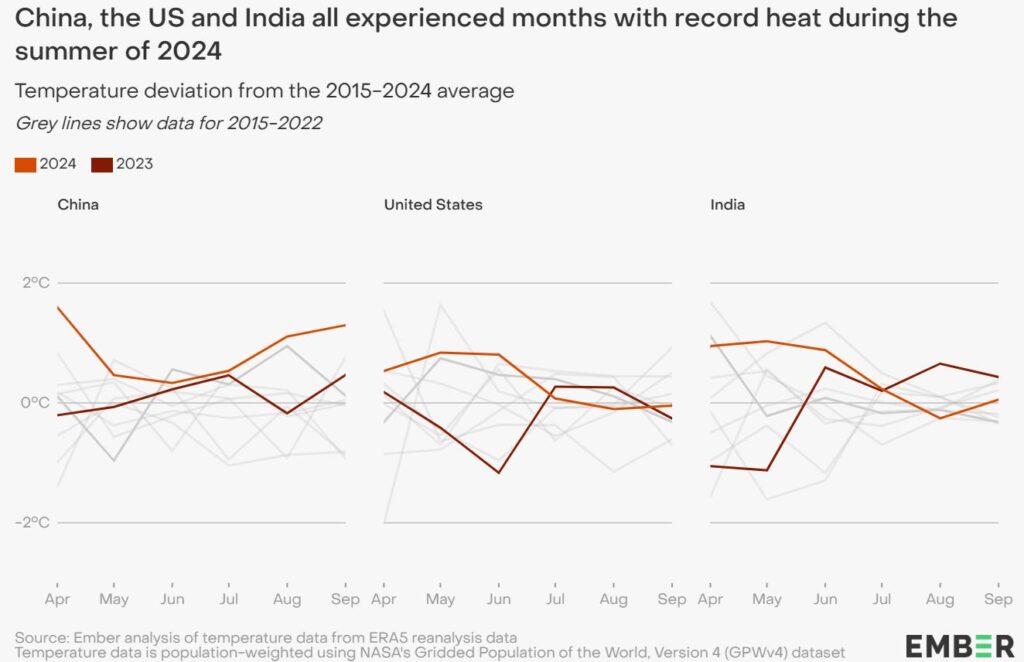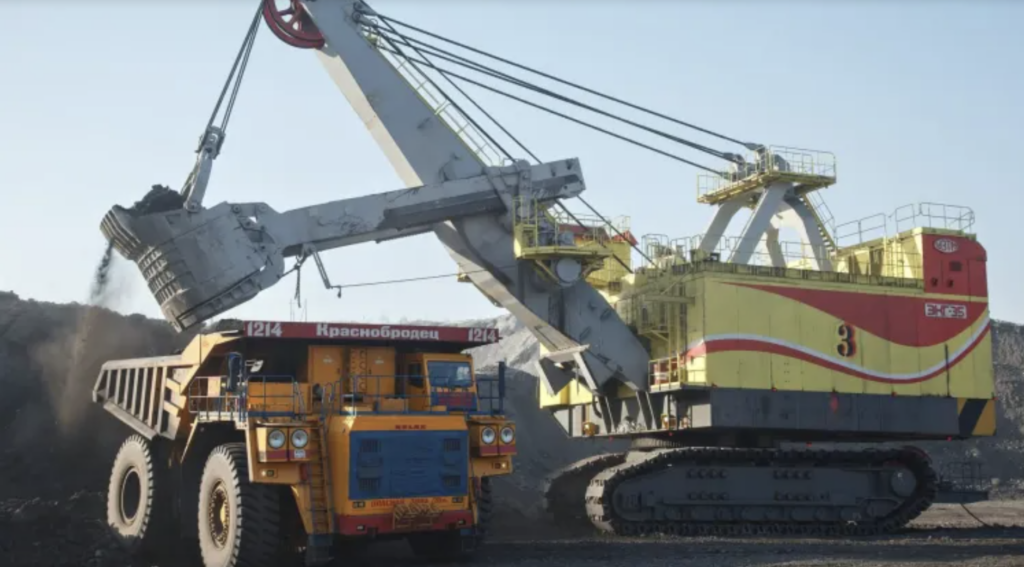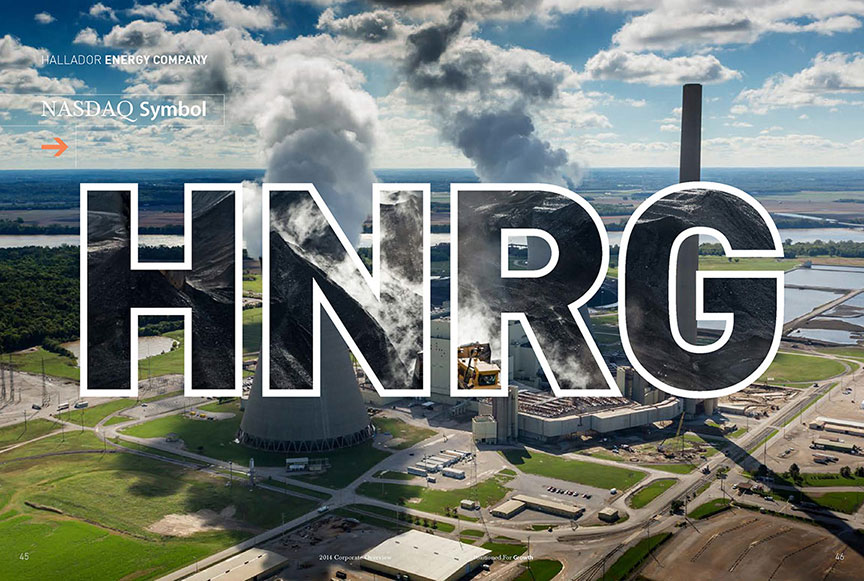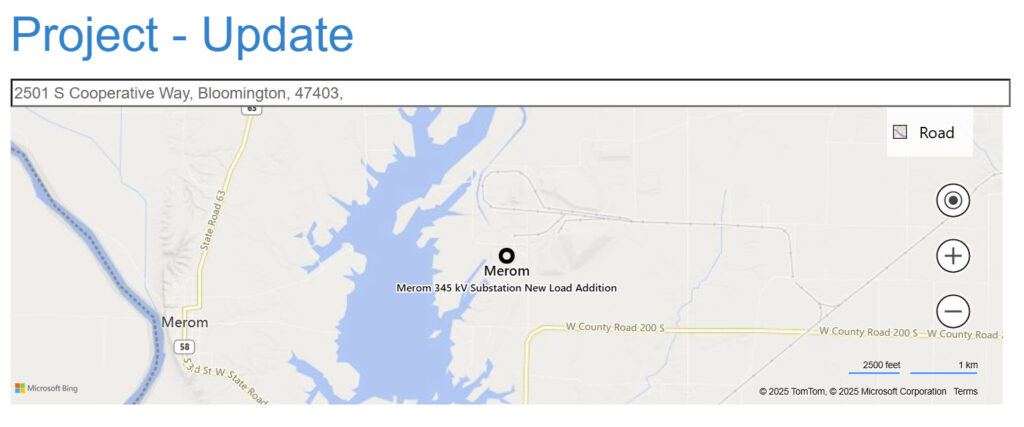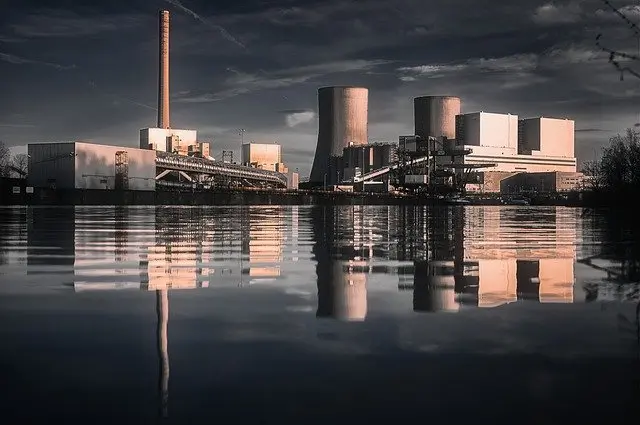Jimmy Brock, President & CEO, CONSOL Energy, addressed the West Virginia Coal Association 50th Annual Mining Symposium held on March 26-27, 2024 at the Charleston Coliseum & Convention Center, Charleston, WV.
Brock quoted a statement from Mark Mills from the Manhattan Institute who said: “trillions of dollars in spending and subsidies on the transition have not significantly changed the energy landscape. Civilization still depends on hydrocarbons for 84% of all energy, a mere 2 percentage points difference than from 20 years ago,” meaning 20 years later, with all this rush to renewables, we made a 2% difference.
Brock explained that fossil fuels around the world over this same time period have increased by roughly 41% with coal increasing by 55%. The question we should all be asking is at what cost? It’s such an insignificant change, yet the world continues at all costs it seems, its rush to renewable energy, at the same time, vilifying fossil fuels and coal.
“The question is not why do we continue to use fossil fuels?” said Brock. “The question is: where did all this prosperity come from? When you start thinking about what we’ve done over time and rush into intermittent sources of electricity with these aggressive goals, how would we farm?” Petroleum is a big part of the farming that supplies our food. How would we supply energy demands with intermittent power sources. All of these things are just simply a narrative behind renewables, and are they simply too good to be true?
“Is this energy transition happening way too fast and we at CONSOL Energy think it is,” said Brock. “The unintended consequences are something that we all should talk about. What trade-offs are we willing to do to get to renewable energy, intermittent sources by 2035 and net zero by 2050 and are we prepared to live in that world with all these tradeoffs?”
“CONSOL would like to know the answer to these questions, and quite frankly, we’re here to say “NOT SO FAST”. The NOT SO FAST campaign is to create a unified voice across the coal industry. In 2012, we had 300,000 megawatts of coal-fired generation here in the US. Fast forward to today, at the end of 2023, we have 180,000 megawatts of coal-fired generation here. China, on the other hand, has 1.1 billion megawatts of coal-fired generation. India has 236,000 megawatts. Those countries are using low-cost fossil fuels such as coal to fuel their economy and to thrive and prosper.
The NOT SO FAST campaign is to advocate for a more realistic and more measured approach instead of rushing to this transition that’s going to put us on a collision course. The campaign will advocate to get out to policymakers, corporate leaders, politicians and the general public on why coal matters today and why it will matter in the foreseeable future. We have to make sure that we use all facts. We want to make sure that the message we send to everyone is factual and no one gets trapped having to answer something that isn’t so.
The popular narrative out there is coal brings no benefits to society. Renewable energy technologies are carbon-free, and there’s no risk with renewables. There’s no reason we should be using fossil fuels today or in the future. NOT SO FAST. This narrative might be in style at the moment, but it’s not reality, and it’s certainly not the world that we live in.
Reuters writes: Worldwide electricity generation from coal hit record highs in 2022 with thermal coal exports surpassing 1 billion metric tons for the first time ever, as coal’s use in power systems continues to grow despite widespread efforts to cut back on fossil fuels. In 2023, that record was broken again. It was by 8.7 billion metric tons produced and consumed. When we say coal is going away, the last two years certainly contradicts that.
Brock said that in Texas, during the Polar Vortex, people lost their lives because they did not have the energy needed to heat their homes. They were actually burning their couches, burning their furniture. In their homes, doing whatever they could do to keep warm, that’s how important a reliable grid system is.
Every year, according to the Minerals Education Coalition, the US average citizen indirectly uses approximately 3000 lbs of coal or 235,000 lbs for a lifetime. Coal is used for so much more than generating electricity. It’s an integral part of our lives, yet everyone takes it for granted. Achieving net zero emissions by 2050 will require far more than most people understand.
There are going to be restrictions to many of our freedoms that are being talked about today. Some of them are ride sharing and mandated thermostat levels. Some estimates calculate that renewable power requires at least 10 times more land area than fossil fuels per unit of power produced. We’re becoming increasingly concerned with the misleading narrative that renewable energy is the only practical path forward. NOT SO FAST directly questions this idea, which often goes unchallenged in today’s media culture. To make our case, we need to directly confront and correct the myth that fossil fuels are net negative to our society.
Coal accounts for approximately 90,000 direct jobs in the US, with an average income of roughly $93,000 a year. Coal indirectly generates another 200,000 jobs nationwide. The Pennsylvania average coal miner working in bituminous coal for us. The average salary is $104,000 a year and not only is it a high paying job with great benefits it’s also family sustainable jobs.
Our job as engineers and as mine managers is to create a safe work environment for all the employees working for us. And what we try to do is we try to use technology and innovation to create technology or procedures and policies and practices that if a coal miner, if he or she makes a mistake, it will not result in a life altering injury, and we’ve been very successful in doing that over time. We need leaders who aren’t afraid to tackle the hard things, talk about these things while they’re important. Everyone needs to know about the remarkable success of the mining industry sustainability efforts.
That many of the timelines proposed by policymakers to remove coal from society are simply unachievable. Coal will be here. There will be a job for the students here today. It’s critically important to change the narrative of everyone telling you that coal will not be here in 10 years.
Brock addressed national security. The reliability of the power grid is critical to our most basic needs of survival. Our homes, schools, businesses, hospitals, factories, airports and governments all stop functioning without a steady flow of electricity. Wind and solar power are simply too intermittent and too unreliable. Coal can provide months of dependable on-site power and quickly adjust to fluctuating demands. Coal doesn’t freeze in the pipeline when the temperature drops.
Now here in the US, we see just how unreliable our grid is becoming and is headed on a collision course. According to the PJM, to reach established net zero goals by 2050, fossil fuel power plants are now retiring much faster than dispatchable and dependable replacement sources are being developed. This imbalance is leading to increased power shortages and much higher risk of rolling blackouts.
In Texas, with regard to the bomb cyclone. one estimate puts the cost of the blackouts from the freezing event of 2021 between $80 and $130 billion, potentially making this into the most expensive disaster in the state’s history. Without a dispatchable base-load energy supply such as coal, millions of people are in danger in times of high energy demand. During the bomb cycle when incremental power is needed during those high demand times, coal is the most responsive to making that happen. Coal supplied 57% that was needed. We are now also seeing the US become dangerously dependent on foreign states for rare minerals and components to build and maintain the huge infrastructure required to realize net zero.
According to the IEA, to accommodate wind and solar power increases, the mining of certain critical minerals will have to increase between 400 and 4000 percent in the next two decades. These are extraordinary numbers that raise serious environmental considerations. From experience, we know that mining operations can take as long as 15 or 16 years to permit them to build them to get them into operation. This hard reality means any transition to renewals will likely take decades before we can move the needle in any meaningful way, unless we’re willing to accept that 2% gain and doing away with jobs and doing away with coal.
The Institute for Energy Research claims China already has 80 to 90 percent of the global rare earth markets. These are metallic elements vital to many high-tech products, including wind turbines and electric vehicle motors. If we’re going to become more dependent on those, take these jobs, American jobs away, and just depend on China to supply all these critical metals. It causes grave concerns for national security.
Brock turned to another serious NOT SO FAST campaign message and that is global poverty. Affordable and abundant energy sources like coal remain essential for meeting the basic needs of billions of people around the world. These developing societies have a moral right to realize the immense benefits of fossil fuels, and especially coal. Coal remains the largest source of electricity on the planet, accounting for 35% of the world’s total power supply. With an estimated 774 million people still without access to electricity, the need for abundant, affordable coal is a moral imperative in emerging populations around the world.
We need to look at greenhouse gases through a global lens. Greenhouse gas is not a regional, local or state problem. It’s a global problem. Globally, it’s going to make 0.2% impact. Is it worth it? Are we willing to give up jobs and freedoms, and the trade off to get to net zero. Everyone thinks of coal as a power source, but it’s really a building block for modern life from a range of materials including steel and cement, to components of water filtration and fertilizers. These and thousands of other vital products are produced with the assistance of coal, either for its carbon as an upstream material or a source of heat in the manufacturing process. The US has the most abundant coal reserves in the world – 250 billion tons.
To the extent we can develop innovative ways to use this valuable domestic resource, we will greatly mitigate our dependencies on foreign nations and advance our own interests. If we take the existing coal-fired plants, such as at Pleasants Power Plant, and convert those over to hydrogen. They’re actually going to burn more coal, and not less to produce that hydrogen. So, let’s shore up our national security. Let’s create jobs and economic benefit here in the US and let’s do it all here at home with the greatest workforce in the world.
Innovation is another key NOT SOFAST campaign message, explained Brock, and we are developing several ways to diversify coal’s potential. We recently launched CONSOL Innovations, a separate business entity within CONSOL with a team of six to take the high attributes of coal and do other things with them. Dan Connell, senior VP of CONSOL Innovations is leading that charge. Things such as deck boards are being developed with 5 different colors made from pulverized coal and plastics blended together, and It’s actually flame resistant.
High strength carbon foam is going to be used in aerospace defense mechanisms for the military. The R&D efforts here are extremely promising. We see coal becoming a high-performance material in aerospace, military, battery storage, building materials and other high technology applications.
The campaign website is CoalHardTruth.com. Please visit the website, spread the word and join in our efforts. When you hear someone telling us about how renewables must replace fossil fuels, immediately tell them NOT SO FAST. Please go to the campaign’s website and check out research. All of the sources and data are well documented and it’s hard to argue with the facts. Not so fast includes many ways of getting our message out. There are over 50 videos to get the message out.
According to Brock, some people are speaking out on our behalf. They understand the vital contributions of fossil fuels, how essential mining is to society. They worry about our economy and really worry about our freedoms. People are standing up to the narrative of nonsense. A new narrative is beginning to emerge. NOT SO FAST.
“We see a future where renewables work together with abated fossil fuel-based power, without compromising our prosperity, health, or the environment. All the above approach to energy, one that embraces innovation, sustainability and a broad variety of power sources. Coal will be relied upon as part of an orderly energy transaction for decades to come,” said Brock. “ I never apologize to anyone for what we do. Coal is here today and will be in the foreseeable future, a vital part of the energy mix, a vital part of infrastructure needed for steel and the things they can provide the economy. We owe no one an apology. We owe them an explanation of why we matter!”
Source: Coal Zoom

